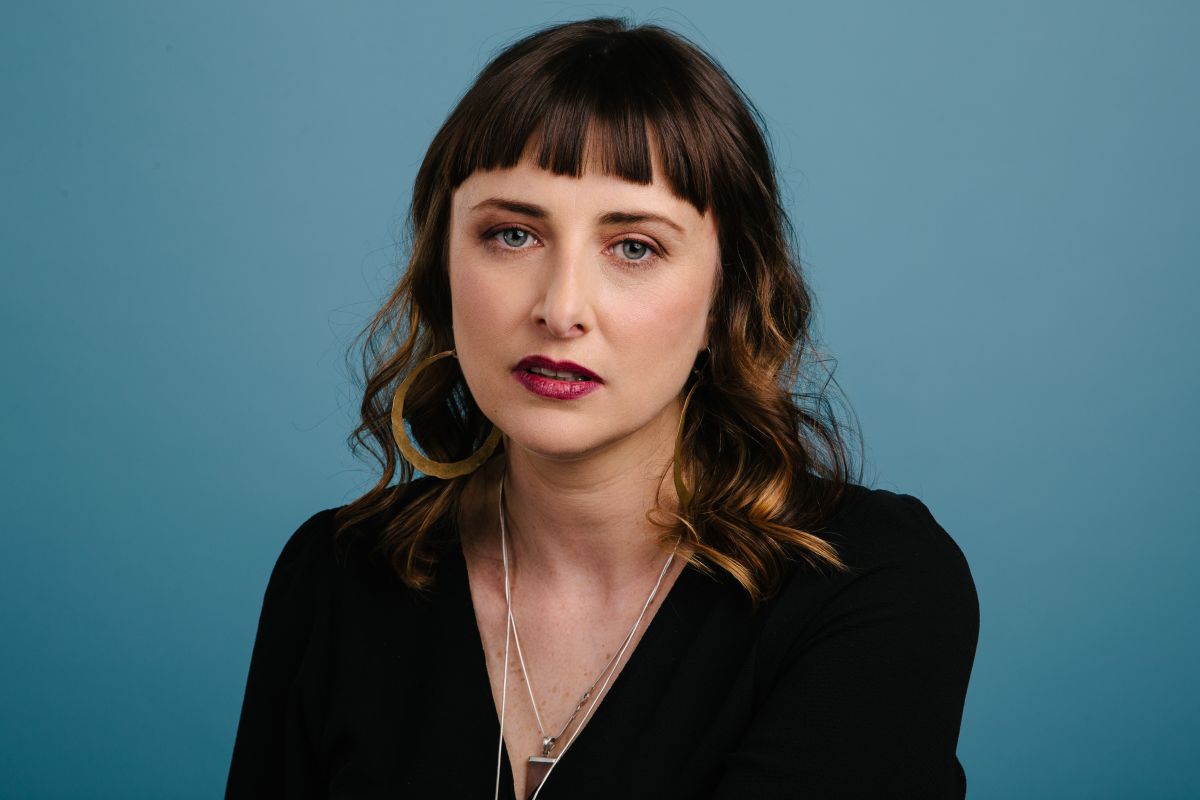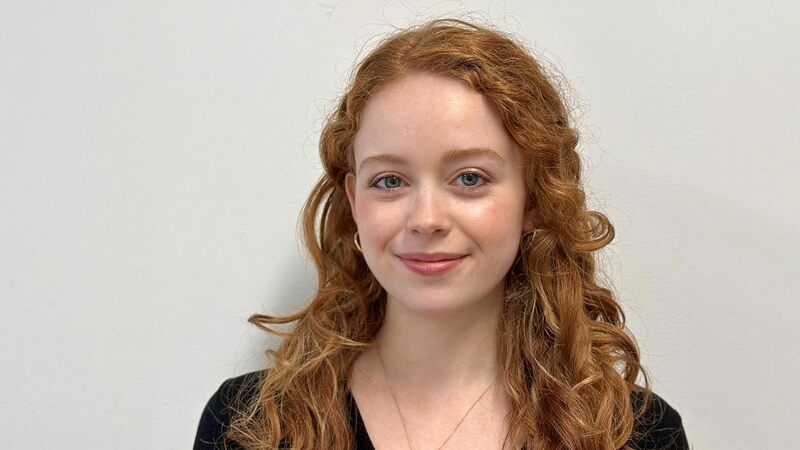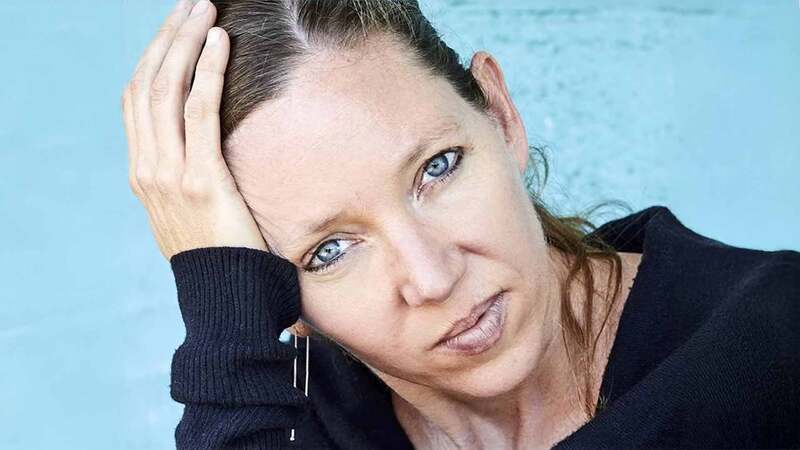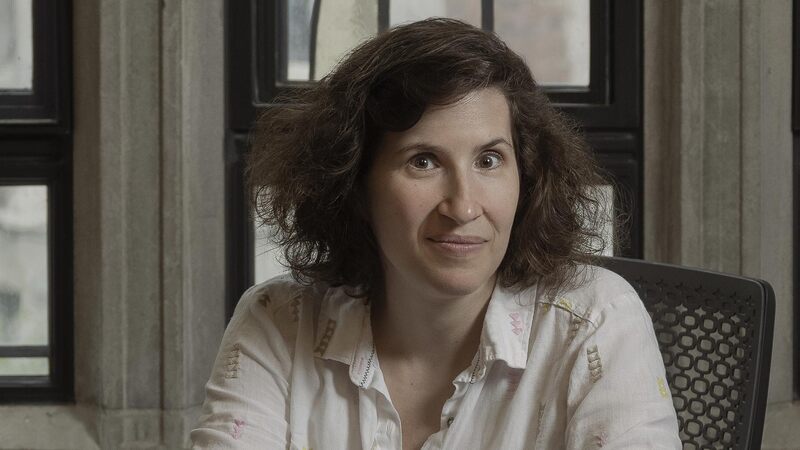You are viewing your 1 free article this month. Login to read more articles.
Frankfurt fiend Folland on crossing the aisle
Rebecca Folland crossing the floor from agency to publisher a year ago was a big deal, but not Churchill-going-over-to-the-Liberals big, or even as big as Tory MP Philip Lee defecting to the Lib Dems, as Boris Johnson was mid-speech, a few weeks ago. No, while Folland had been happily ensconced as rights director for Janklow & Nesbit UK, she had worked for the "other side" before, starting her books career at Frances Lincoln and later spending eight years at Penguin.
But it was a good old stretch at Janklow, 13 years, and in fact she was the first rights director for the British outpost of the agency. But the lure of "being back in a publisher and seeing the whole process was irresistible". It was a bigger job, too, as Folland now heads a rights team of eight which encompasses Hodder, Headline, John Murray Press and Quercus. And just a week before FBF, she was given additional responsibility of heading up a forum for all Hachette UK rights directors, to "harness shared knowledge and experience".
At the core, there is not all that much difference between agency and publisher, Folland says, adding: "What has struck me is the lack of differences: when we sell rights, both publishers and agents are all trying to do the best for our authors. The difference here, and the benefit, is that I can now collaborate with all the teams—editorial, publicity, marketing—and be part of the excitement of the publication. As a publisher we are very close to the book, so we can feed that excitement to the other publishers. And being on a very large team is a benefit, too. We can pool our resources; we work directly in almost every market we sell into."
Of course, there has been some friction over the past few years, with some global publishers trying, arguably more aggressively than ever before, to nab world rights. Folland acknowledges there is perhaps a greater tussle now, but suggests that this should be contextualised. "Rights is a big focus of what we do [at Hachette], with the understanding that it adds value to the author’s career. The things we are doing internationally can feed into the excitement of a book in the UK. But the argument that publishers are being very aggressive for rights as a blanket statement can be very dangerous. You should look at it on an author by author, book by book basis, as there can be a different model for each book."


Authors L-R Noreena Hertz and Ruth McIver
A rich vein
Wherever you stand on the agency versus publisher issue, Folland and her team have been on a roll this year. One of their biggest hits has been Holly Miller’s The Sight of You, with world rights bought by Hodder editorial director Kimberley Atkins from Rebecca Ritchie at A M Heath. The high-concept love story—Joel has visions of how his relationships finish, so can he still fall for his perfect match, Callie, if he knows what he thinks is the end?—is to be Hodder’s lead summer title in 2020, and it has been snapped up in 20 languages, "with more to come".
Other hot properties include Noreena Hertz’s The Lonely Century, about the debilitating effects of solitude in modern life, which Sceptre’s Juliet Brooke pre-empted within 24 hours of manuscript receipt from Jonny Geller at Curtis Brown; Laura Lam’s "The Handmaid’s Tale set in space" début, nabbed by Wildfire commissioning editor Ella Gordon from Juliet Mushens at CaskieMushens; and Ruth McIver’s crime début I Shot the Devil, bought by Tinder Press in a joint deal with Hachette Australia from Jacinta de Mase Management.
Folland, naturally, will be hoping each and every one of these books takes off this FBF. She has been in "book of the fair"-type hurricanes before: Kiran Milwood Hargrave’s The Mercies at London Book Fair 2018, while Folland was at Janklow, is a recent example. When this lightning strikes, keeping one’s head is crucial: "The first thing is that it’s all about the book. You can’t create hype out of nothing. A useful skill is knowing when you have something good, to get early reads and get people excited about it. A good book will take on its own life: you get take-up from scouts, from people in-house.
 "It’s very nice, when [a book of the fair] happens, that you are able to give all that good news to the author. But it is easy to get drawn into the excitement. You still have to step back, stick with your strategy and remember to keep what’s in the best interest of your author at the heart of what you do. When you are thinking, say, who the best publisher in Germany or France is, you are thinking who will do the best job, not necessarily who is offering the most money."
"It’s very nice, when [a book of the fair] happens, that you are able to give all that good news to the author. But it is easy to get drawn into the excitement. You still have to step back, stick with your strategy and remember to keep what’s in the best interest of your author at the heart of what you do. When you are thinking, say, who the best publisher in Germany or France is, you are thinking who will do the best job, not necessarily who is offering the most money."
Fast love, slow news
The hot trends that might set the Messe alight this year are high-concept love stories, crime and "smart non-fiction, which is a huge area". The news cycle is a big reason for the latter trend, Folland says: "People want books to explain the world to them, books that have take-aways which can help [readers to] deal with the world: they want direction, to feel in control, something that makes people feel less vulnerable to outside forces."
China and the Far East, unsurprisingly, are the regions with their chequebooks open at the moment. But Folland says Germany is holding steady, as is France, and "we’ve seen a real revival in Spain after a bit of dip... Brazil is a challenging market, because of the economic and political situation. But even in challenging markets, with the right book, you can still do good business."
Folland "tragically loves Frankfurt". She is also glad to be back in the halls, away from the agents’ centre, as she can "be among the books. I can be talking to a German publisher about a book and go grab its editor. Being on a big buzzy stand is so exciting." Things have changed over the years, though: fewer deals get done at FBF, the scouting networks are so advanced that foreign publishers often have a good idea what you will be pitching, and "you used to see dollars get traded under the table from Russian publishers; you don’t see that anymore".
On to inevitable "B" question. Brexit has actually been fairly good for rights, owing to the depreciation of Sterling, she says, "but I am worried about how the way we are seen as a country might affect the appetite for our literature. I’m worried about that, though I am not seeing that. Yet if we talk to the American publishers, they have their own challenges. As do a lot of Europeans. I think there is a sense that we are all in this world of rising populism and we are all experiencing challenges. The common thing that links us all is our love for good writing, and I do have an optimism that that will transcend any political situation."













